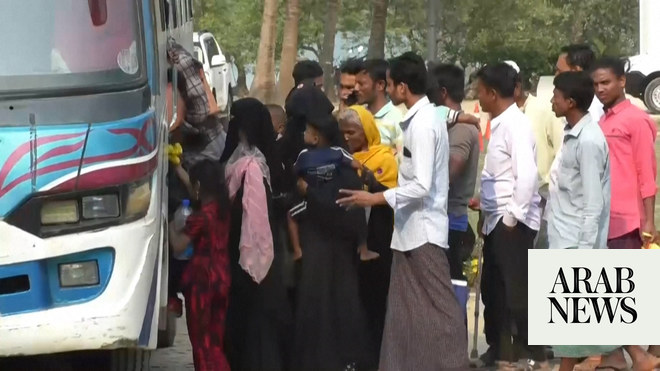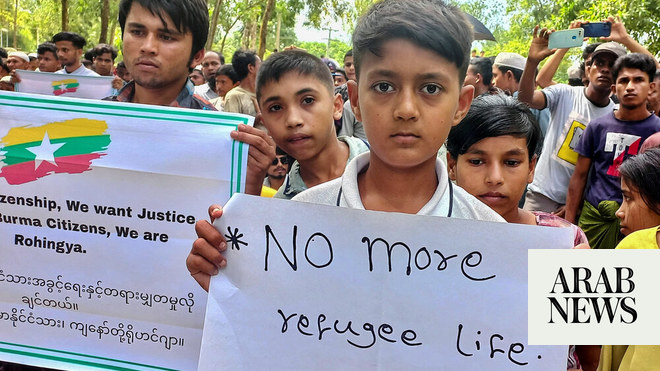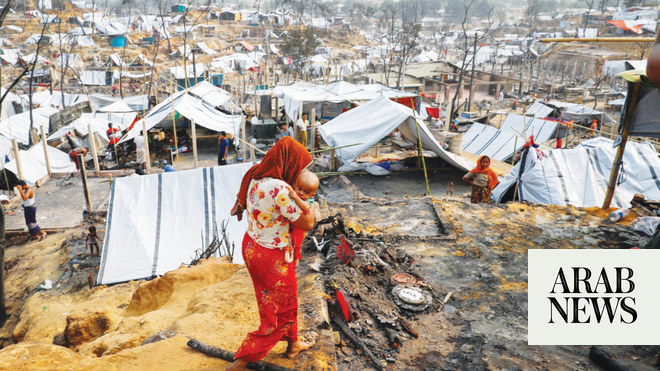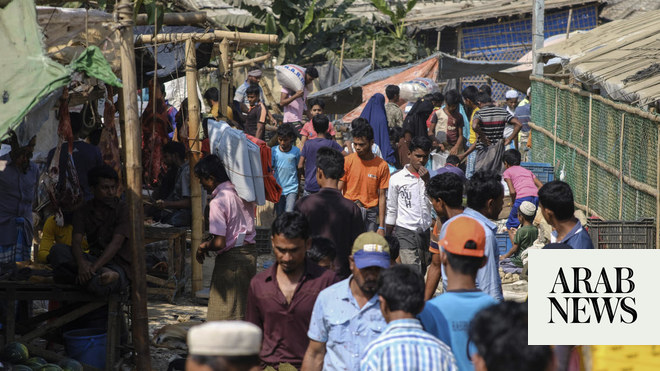
No Rohingya Muslims turned up to return to Myanmar from camps in Bangladesh, said the country’s refugee commissioner, Mohammed Abul Kalam, on Thursday.
Members of the minority, 740,000 of whom fled a military offensive in 2017 that the United Nations likened to ethnic cleansing, are refusing to return without guarantees for their safety and a promise that they will at last be given citizenship by Myanmar.
None of them showed up to hop on five buses and 10 trucks laid on by Bangladesh.
Abul Kalam told a news conference that no one from 295 families already interviewed since Tuesday by the Bangladesh government and the UNs refugee agency agreed to go back to Myanmar.
Myanmar had earlier said the repatriation would start from Thursday. The Buddhist-majority country has certified more than 3,000 refugees from at least 1,056 families as eligible for repatriation.
Bangladesh Prime Minister Sheikh Hasina said her government will not force the refugees to return and the repatriation will only happen if they are willing.
"The Myanmar government raped us, and killed us. So we need security. Without security we will never go back," Rohingya leader Nosima said, according to a statement released by the refugees.
"We need a real guarantee of citizenship, security and promise of original homelands," said Mohammad Islam, a Rohingya from Camp 26, one of a string of sites in south-east Bangladesh that are home to around a million people.
"So we must talk with the Myanmar government about this before repatriation."
The vehicles provided to transport a first batch out of 3,450 earmarked for return turned up at 9:00 am (0300 GMT) at a camp in Teknaf.
But four hours later none had showed up.
Abul Kalam said the buses and trucks would wait at the camp until 4:00 pm and that they would continue to interview families.
The Rohingya are not recognized as an official minority by the Myanmar government, which considers them Bengali interlopers despite many families having lived in the country for generations. This has rendered them stateless, and they face other forms of state-sanctioned discrimination.
A UN-established investigation last year recommended the prosecution of Myanmars top military commanders on charges of genocide, war crimes and crimes against humanity for the crackdown on the Rohingya. Myanmar dismissed the allegations.
The International Criminal Court has started a preliminary probe.
The latest repatriation attempt -- a previous push failed in November with many of those on a returnees list going into hiding -- follows a visit last month to the camps by high-ranking officials from Myanmar led by Permanent Foreign Secretary Myint Thu.
Bangladeshs foreign ministry forwarded a list of more than 22,000 refugees to Myanmar for verification and Naypyidaw cleared 3,450 individuals for "return".
Rohingya community leader Jafar Alam told AFP the refugees had been gripped by fear since authorities announced the fresh repatriation process.
They also feared being sent to camps for internally displaced people (IDP) if they went back to Myanmar.
In New York, UN spokesman Stephane Dujarric said Wednesday that repatriations had to be "voluntary".
"Any return should be voluntary and sustainable and in safety and in dignity to their place of origin and choice," Dujarric told reporters.
The UN Security Council met behind closed doors on the issue on Wednesday.
"Myanmar has yet to address the systematic persecution and violence against the Rohingya, so refugees have every reason to fear for their safety if they return," Human Rights Watch said Thursday.












